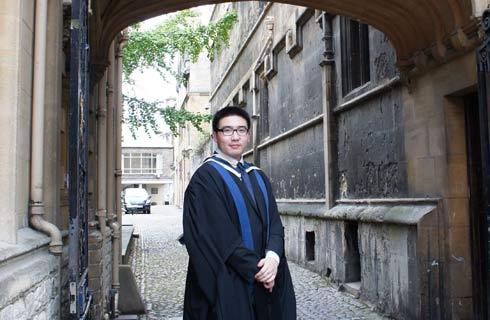MBiol(荣誉)生态与保护生物学
MBiol, BSc (Hons) Ecology and Conservation Biology

学历文凭
Bachelor Degree

专业院系
Faculty of Biological Sciences

开学时间

课程时长

课程学费

国际学生入学条件
IDP—雅思考试联合主办方

雅思考试总分
- 雅思总分:
- 托福网考总分:
- 托福笔试总分:
- 其他语言考试:
CRICOS代码: C189
申请截止日期: 请与IDP联系 以获取详细信息。
课程简介
As populations grow and human activities threaten the natural world, ecology and conservation biology has never been more important. With this degree, you’ll discover how we sustain biodiversity and the fundamental importance of the ecological processes involved. On this course, you’ll gain cutting-edge knowledge and develop your skills and experience in ecology and conservation, from your doorstep to the globe. With exciting field courses in wonderful landscapes, to observations of animal behaviour in the lab, you’ll learn how to measure the distribution and abundance of different species, how organisms interact with each other and their environment, and be challenged to think creatively about the application of ecology to conservation problems. Personalise your degree by studying from a wide choice of optional modules, including animal behaviour, evolution, climate change science, sustainability and environmental law.This integrated Masters (MBiol) gives you an additional year of specialist training, to study advanced research topics and undertake your own extended research project. You may also choose to apply for our 3-year BSc and transfer to an MBiol up until the end of your second year, subject to suitable academic performance.Course highlightsOne of the broadest ecology degree programmes with optional modules from across the University, which will build your knowledge of ecology and conservation from a wide perspective.Gain experience in a wide range of ecological and conservation contexts through specialised modules, field courses and research projects.Develop your practical field-based skills by confronting different ecological problems and conservation issues during a residential field course, as well as an optional field course in South Africa.Learn about sustainable cities and the value of biodiversity on your own doorstep during the urban ecology field course.One year of additional specialist training culminating in an original, cutting-edge extended research project that will equip you with the skills necessary for a research career, and set you apart in the graduate job market.Flexible degrees:Ecology and conservation biology is a degree within the School of Biology which offers you flexibility throughout your time studying at Leeds.All of our biology degree courses share the same set of compulsory modules in the first year. A key benefit of having a common first year is that at the end of year 1, there are opportunities to transfer onto degree courses in Biology, Zoology and Genetics, subject to approval. Additional degree courses may be available depending on your academic background.FacilitiesYour degree will be based in the Faculty of Biological Sciences, one of the largest centres for biological sciences research in the UK and home to cutting-edge research facilities. You’ll have access to field research stations based in the UK, Europe and Africa to help you learn about ecology and conservation in contrasting landscapes. The city’s green spaces and nearby Yorkshire Dales National Park also provide a range of habitats that support modules in the degree programme. The University’s research farm is where you can learn about sustainable agriculture, while you could examine biodiversity interactions in the Faculty’s extensive greenhouse and plant growth facilities.Wellbeing and support The University of Leeds features an extensive network of excellent services dedicated to you and your wellbeing. We are here to help throughout your time in higher education, ensuring you have everything you need to succeed. For more information on the different facets of support you will have access to, please see our Wellbeing and Support page.Ecology and Wildlife Conservation online courseGet a taste of Ecology and Conservation Biology MBiol with our exceptional online course, Ecology and Wildlife Conservation.
相关申请
 预科
预科 奖学金
奖学金 实习机会
实习机会 在校学习
在校学习 跨境学习
跨境学习 校园授课-线上开始
校园授课-线上开始 在线/远程学习
在线/远程学习
开学时间&学费
学费信息仅供参考,请与IDP联系以获取详细信息
| 开学时间 | 时长 | 学费 | 地点 |
|---|
学校排名

世界排名153
数据源:
泰晤士高等教育世界大学排名
关于利兹大学

利兹大学在《2025 完整大学指南》中名列英国大学前25名,在2025 QS世界大学排名中名列世界前100名。它也是罗素大学集团大学之一,这是英国著名的顶尖研究密集型大学名单。该大学的学生满意度很高,在英国排名第三(2018年《泰晤士报高等教育学生体验调查》)。作为同一项调查的一部分,该大学的校园设施在英国排名第二,这是对学生发挥潜力的绝佳校园的认可。近年来,两栋新建筑投资超过1.2亿英镑。体育设施也被认为是世界级的。The Edge是一个为学生提供的令人难以置信的健身中心,包括一个25米的室内游泳池、攀岩墙和为不同体育活动设置的各种大厅。这是一所热情友好的大学,拥有充满活力、多样化的学生群体。事实上,来自世界130多个不同国家的13800多名国际学生在利兹大学学习。学生会是这个国家最活跃、最活跃的工会之一。学生可以加入300多个俱乐部和社团,利兹大学联盟(LUU)是英国第一个被全国学生联合会评为''优秀''的俱乐部和社团。
本校相关课程

生物多样性与保护
学历文凭
Masters Degree (Taught)
开学日期
课程费用总额


统计博士学位
学历文凭
Ph.D.
开学日期
课程费用总额


纯粹数学博士学位
学历文凭
Ph.D.
开学日期
课程费用总额


应用数学博士学位
学历文凭
Ph.D.
开学日期
课程费用总额


PhD in Geography
学历文凭
Ph.D.
开学日期
课程费用总额


PhD in Microwave and Millimetre Wave Engineering
学历文凭
Ph.D.
开学日期
课程费用总额

其他相关课程

理学学士(荣誉)生物医学
 德蒙福特大学
德蒙福特大学泰晤士高等教育世界大学排名:639
学历文凭
Bachelor Degree with Honours
开学日期
课程费用总额


理学硕士-分子和细胞生物学(研究)
 怀卡托大学
怀卡托大学学历文凭
Masters Degree (Research)
开学日期
课程费用总额


生物医学硕士
 奥克兰大学
奥克兰大学学历文凭
Masters Degree (Research)
开学日期
课程费用总额


MRes Cancer Biology
 诺丁汉特伦特大学
诺丁汉特伦特大学泰晤士高等教育世界大学排名:696
学历文凭
Masters Degree (Research)
开学日期
课程费用总额


理学学士(荣誉)生物医学
 布里斯托大学
布里斯托大学泰晤士高等教育世界大学排名:81
学历文凭
Bachelor Degree with Honours
开学日期
课程费用总额


PhD in Immunological and Cellular Strategies in Metabolic Disease (King's and Technische Universität Dresden)
 伦敦国王学院
伦敦国王学院学历文凭
Ph.D.
开学日期
课程费用总额










